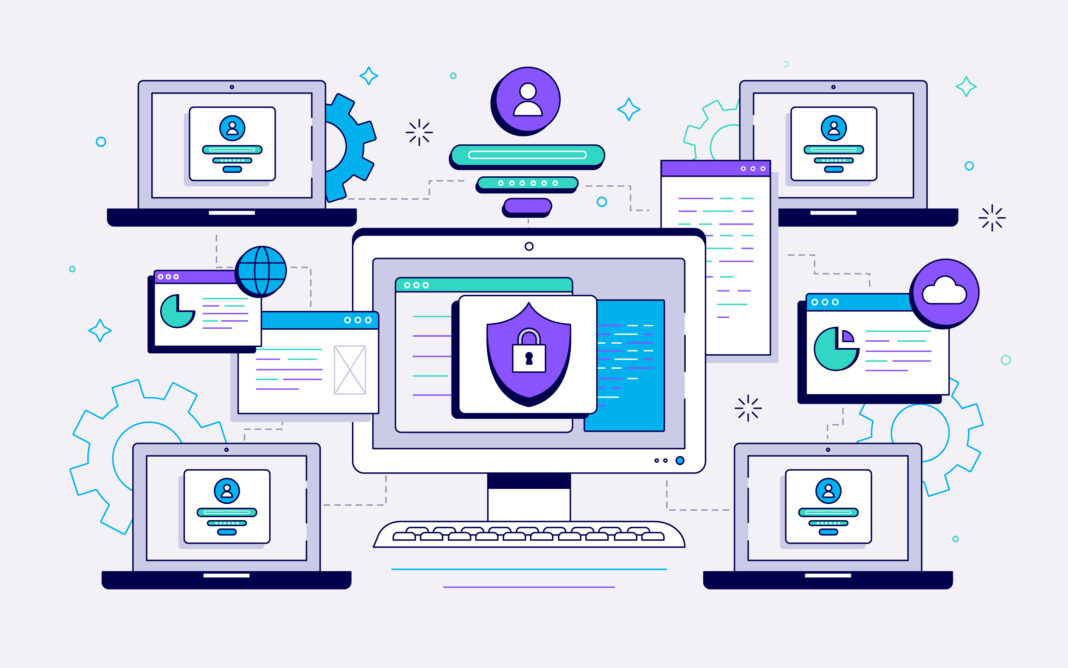In a world where cyber threats are increasingly sophisticated, protecting your digital devices is no longer optional—it’s essential. Antivirus software plays a critical role in safeguarding your data, privacy, and overall digital security. This article will explain how antivirus software works, why it’s necessary, and how to choose the right solution for your needs. By the end, you’ll have a clear understanding of the importance of antivirus protection and how it can help you stay secure in an ever-evolving digital landscape.

What is Antivirus Software?
Antivirus software is a program designed to detect, prevent, and remove malicious software, commonly known as malware. Malware includes viruses, worms, trojans, ransomware, spyware, adware, and other harmful programs that can compromise your computer or mobile device. Antivirus software acts as a shield, constantly scanning for threats and neutralizing them before they can cause damage.
The primary goal of antivirus software is to protect your device and data from unauthorized access, theft, or corruption. It does this by using a combination of signature-based detection, heuristic analysis, behavioral monitoring, and other advanced techniques to identify and eliminate threats.
How Does Antivirus Software Work?
Antivirus software employs several methods to detect and neutralize threats. Here’s a breakdown of the most common techniques:
1. Signature-Based Detection
Signature-based detection is one of the oldest and most reliable methods used by antivirus programs. It works by comparing files on your device to a database of known malware signatures. These signatures are unique identifiers that represent specific pieces of malware. If a file matches a signature in the database, the antivirus software flags it as malicious and takes appropriate action, such as quarantining or deleting the file.
While effective, signature-based detection has limitations. It can only detect known threats, meaning it may struggle to identify new or emerging malware. To address this, antivirus programs frequently update their signature databases to include the latest threats.
2. Heuristic Analysis
Heuristic analysis is a more advanced technique that allows antivirus software to detect previously unknown malware. Instead of relying on known signatures, heuristic analysis examines the behavior and characteristics of files to identify suspicious patterns. For example, if a file attempts to modify system settings or replicate itself, the antivirus software may flag it as potentially harmful.
This method is particularly useful for detecting zero-day threats—malware that exploits vulnerabilities before they are publicly known. However, heuristic analysis can sometimes produce false positives, flagging legitimate files as malicious.
3. Behavioral Monitoring
Behavioral monitoring, also known as behavior-based detection, focuses on how programs behave in real-time. Antivirus software monitors running processes and applications for unusual or suspicious activity. For instance, if a program suddenly starts encrypting files or sending large amounts of data to an unknown server, the antivirus software will intervene.
This approach is highly effective against ransomware and other types of malware that rely on specific behaviors to achieve their goals. By detecting and stopping these behaviors early, antivirus software can prevent significant damage.
4. Sandboxing
Sandboxing is a technique that involves running suspicious files in an isolated environment, or “sandbox,” to observe their behavior. This allows the antivirus software to analyze the file without risking the security of the entire system. If the file exhibits malicious behavior, it is quarantined or deleted.
Sandboxing is particularly useful for analyzing complex or unknown threats. However, it can be resource-intensive and may slow down your device during the analysis process.
5. Machine Learning and AI
Modern antivirus programs increasingly rely on machine learning and artificial intelligence (AI) to enhance their detection capabilities. These technologies enable the software to learn from past threats and adapt to new ones. By analyzing vast amounts of data, machine learning algorithms can identify patterns and predict potential threats with high accuracy.
AI-powered antivirus solutions are particularly effective at detecting sophisticated attacks, such as advanced persistent threats (APTs) and polymorphic malware, which constantly changes its code to evade detection.
Why Do You Need Antivirus Software?
The internet is a breeding ground for cyber threats, and no device is immune. Here are some compelling reasons why antivirus software is essential:
1. Protection Against Malware
Malware can cause a wide range of problems, from slowing down your device to stealing sensitive information. Antivirus software provides a critical layer of defense, ensuring that your device remains free from malicious programs.
2. Safeguarding Personal Data
Cybercriminals often target personal data, such as passwords, credit card numbers, and social security numbers. Antivirus software helps protect this information by blocking unauthorized access and encrypting sensitive files.
3. Preventing Identity Theft
Identity theft is a growing concern, with cybercriminals using stolen information to commit fraud. Antivirus software can detect and block phishing attempts, keyloggers, and other tools used to steal personal information.
4. Ensuring Online Safety
Antivirus software often includes additional features, such as firewalls, VPNs, and browser extensions, to enhance your online safety. These tools help protect your privacy and prevent malicious websites from infecting your device.
5. Maintaining Device Performance
Malware can significantly impact your device’s performance, causing it to slow down or crash. Antivirus software helps maintain optimal performance by removing harmful programs and optimizing system resources.
How to Choose the Right Antivirus Software
With so many options available, choosing the right antivirus software can be challenging. Here are some factors to consider:
1. Detection Rates
Look for antivirus software with high detection rates, as this indicates its ability to identify and neutralize threats effectively. Independent testing labs, such as AV-Test and AV-Comparatives, regularly evaluate antivirus programs and publish their results.
2. System Impact
Some antivirus programs can be resource-intensive, slowing down your device during scans. Choose a solution that offers a good balance between protection and performance.
3. Additional Features
Many antivirus programs come with extra features, such as firewalls, password managers, and parental controls. Consider your specific needs and choose a solution that offers the features you require.
4. Ease of Use
Antivirus software should be easy to install and use, even for non-technical users. Look for a program with an intuitive interface and clear instructions.
5. Customer Support
Reliable customer support is essential, especially if you encounter issues with the software. Choose a provider that offers multiple support channels, such as phone, email, and live chat.
Frequently Asked Questions (FAQs)
1. Can antivirus software detect all types of malware?
While antivirus software is highly effective, it cannot detect every type of malware. Some advanced threats, such as zero-day exploits, may evade detection. However, regular updates and advanced techniques, such as heuristic analysis and machine learning, significantly improve detection rates.
2. Do I need antivirus software if I have a Mac?
Yes, Macs are not immune to malware. While they are generally less targeted than Windows devices, the number of Mac-specific threats is increasing. Antivirus software provides an additional layer of protection for Mac users.
3. How often should I update my antivirus software?
Antivirus software should be updated regularly, ideally daily. Updates include new malware signatures and security patches, ensuring that your software can detect the latest threats.
4. Can antivirus software slow down my computer?
Some antivirus programs can be resource-intensive, especially during scans. However, many modern solutions are designed to minimize system impact. Look for lightweight antivirus software if performance is a concern.
5. Is free antivirus software effective?
Free antivirus software can provide basic protection, but it often lacks advanced features and comprehensive support. Paid solutions typically offer better detection rates, additional features, and more reliable customer support.
Conclusion
Antivirus software is an essential tool for protecting your digital devices and personal information. By understanding how it works and why it’s necessary, you can make informed decisions about your cybersecurity. Whether you’re a casual user or a business professional, investing in reliable antivirus software is a small price to pay for peace of mind and security. Stay vigilant, keep your software updated, and take proactive steps to safeguard your digital life.

